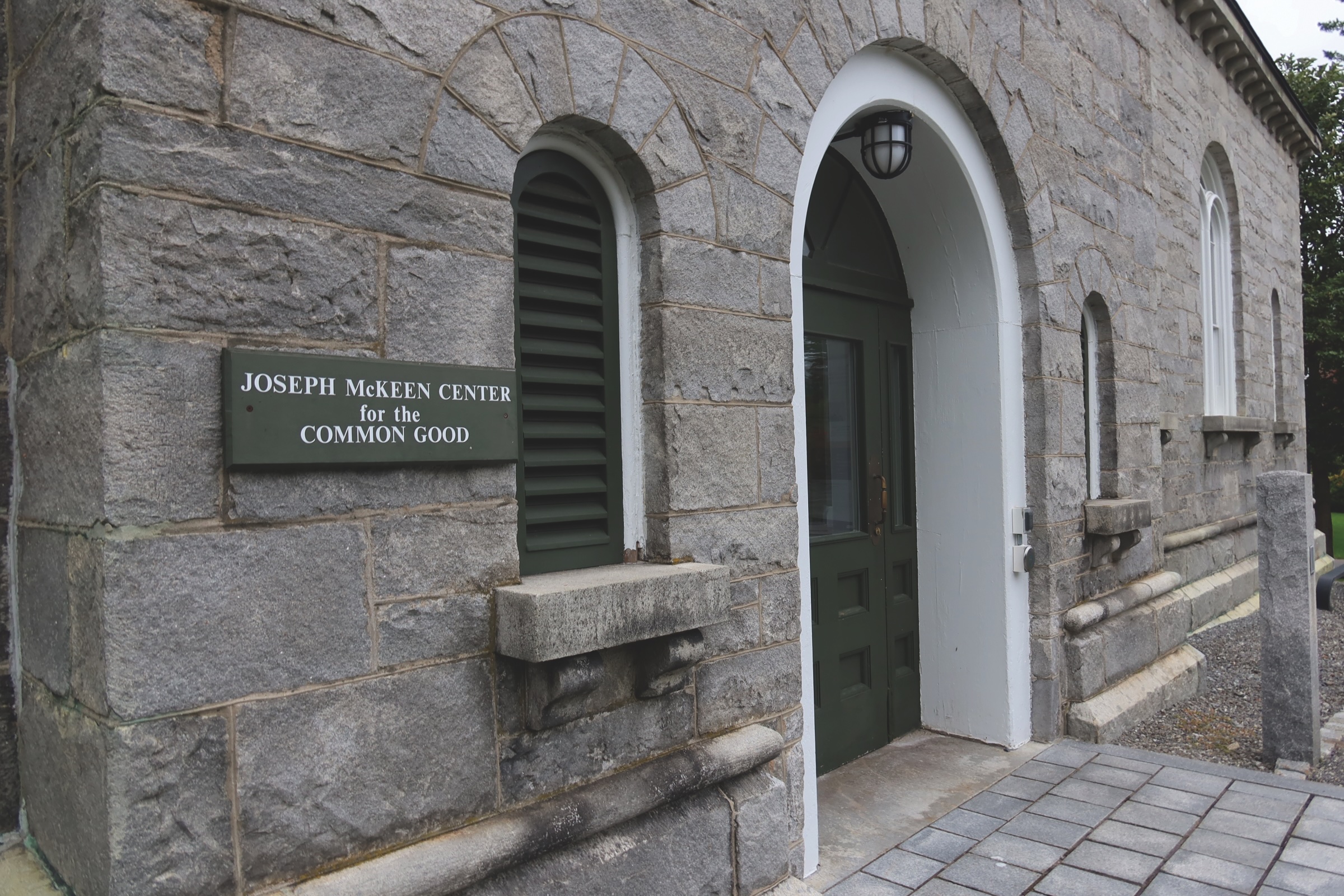What’s in a Name? The McKeen Center
September 27, 2024
 Maja Keatley
Maja KeatleyThe common good, one of Bowdoin’s core tenets, dates all the way back to the opening of the College in 1802. Today, we see the common good in practice almost daily through the Joseph McKeen Center for the Common Good, the College’s center for service learning and community engagement.
The McKeen Center, founded in 2008, may seem like a fairly recent addition to campus in comparison to the over 200-year history of the College. However, the name McKeen has been of the utmost importance to Bowdoin through the centuries.
Joseph McKeen, born in 1757 in Londonderry, N.H., graduated from Dartmouth College in 1774 and from Harvard College in 1782 with degrees in mathematics and astronomy. McKeen spent a large part of his life in education and ministry until he was called to serve as the first president of Bowdoin College.
In September of 1802, McKeen opened the College for its inaugural academic year. In the original campus building—Massachusetts Hall—McKeen gave a powerful speech that would go on to inspire many of the service initiatives on campus.
The speech emphasized the “common good,” which became a guiding principle for the College.
“It ought always to be remembered that literary institutions are founded and endowed for the common good, and not for the private advantage of those who resort to them for education, … that every man who has been aided by a public institution to acquire an education, and to qualify himself for usefulness, is under peculiar obligations to exert his talents for the public good,” McKeen said in his inaugural address.
While no formal service learning institution existed for the majority of Bowdoin’s history, Samantha Cogswell ’11, associate director of the McKeen Center, believes that focus on serving the public good has always been ingrained in the College. A formal recognition of the “common good” on campus began around 1999, with the start of the then-annual tradition of Common Good Day.
“Common Good Day was something that was started in 1999, right before all of this [McKeen Center programming] started to bubble up a bit more. This day used to be this campus-wide day of service that would happen where we would mobilize groups of students, faculty, staff and alums to go out into the community and work with various nonprofit partners,” Cogswell said.
Sarah Seames, the director of the McKeen Center, noted that around this time, the College celebrated the 200th anniversary of its founding and operation—an anniversary that spans from 1994 to 2002 since the College was chartered in 1794 and became operational in 1802.
Seames added it became more popular for students on college campuses to engage in community service efforts in the mid-90s and early 2000s.
In 2001, the first Bowdoin-endowed volunteer organization was founded under Lydia Bell ’00 who became the director of the Community Service Resource Center (CRSC), which was based out of Adams Hall.
Over the next seven years, the CRSC grew in size and importance and, with the help of a large capital campaign, led to the launch of the McKeen Center in 2008.
Since 2008, the Center, now located in the Chapel, has focused on keeping the sentiments expressed in McKeen’s commencement address at the center of its efforts.
“It is really interesting to think about what Joseph McKeen meant at that time in 1802 … and how different the campus is today, over 200 years later and what parts of it are certainly the same. I think the general spirit of it, to think beyond yourself, to the good of your community, is the basic same spirit,” Seames said.
Looking forward, the directors of the Center hope to stay central to the main goal and guidelines set by McKeen himself while also adapting to changing community needs.
“In 20 years, I hope we still see the blueprint of that original work, of why it was founded, but I also hope that we can still be responsive to student needs as well,” Cogswell said.
Although the phrase “common good” has stayed consistent throughout history, its meaning is not monolithic.
“In this office, we don’t define the common good, and so we really want students to explore it and find out … for themselves what it means to them,” Seames said. “The overall idea, of course, is that even though you’re looking for it individually, [the common good] goes beyond yourself.”

Comments
Before submitting a comment, please review our comment policy. Some key points from the policy: